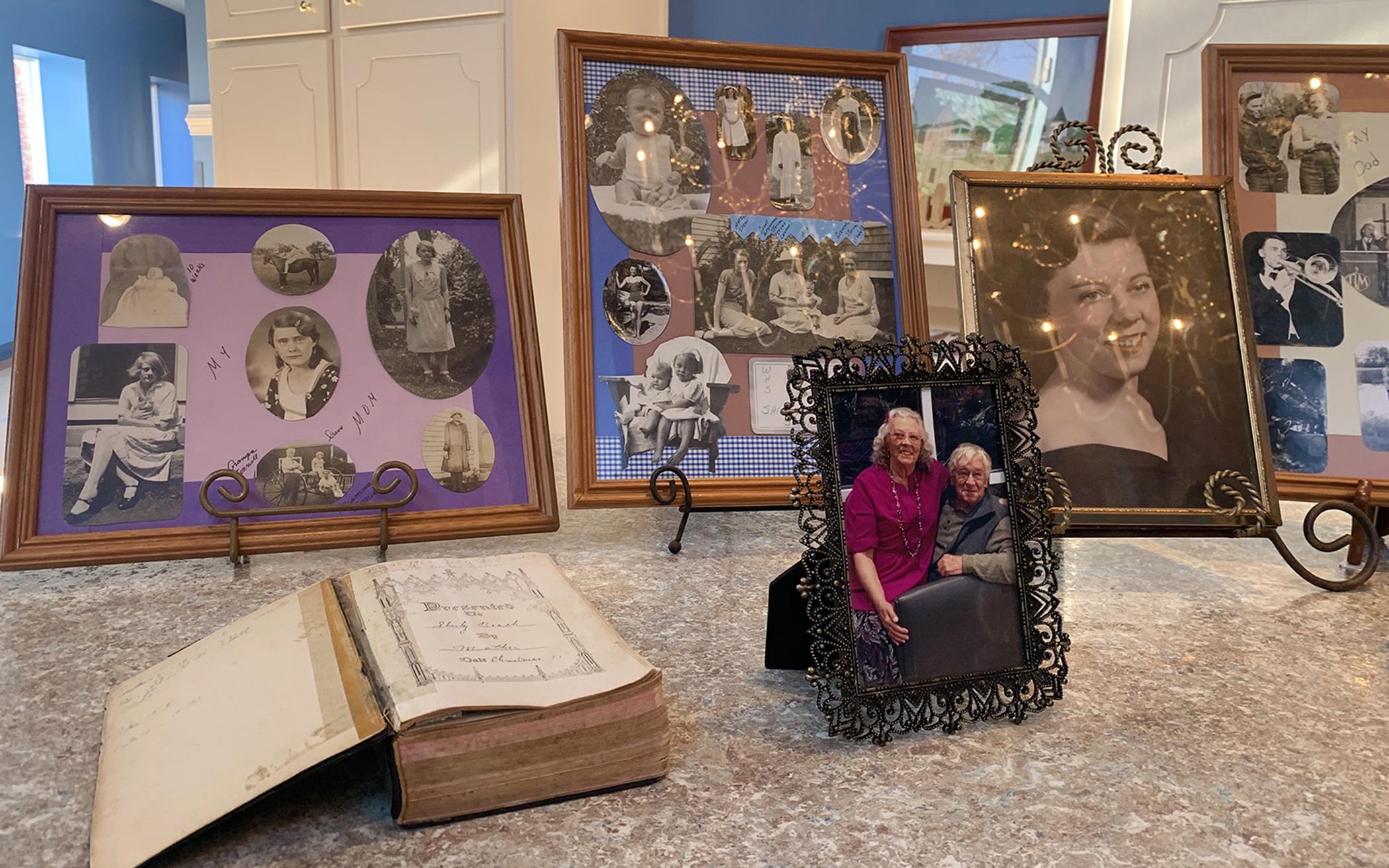As I Was Saying is a forum for a variety of perspectives to foster faith-related conversations among our readers with the goal of mutual learning, even in disagreement. Apart from articles written by editorial staff, these perspectives do not necessarily reflect the views of The Banner. The Banner has a subscription to republish articles from Religion News Service. This commentary by Karen Swallow Prior was published Dec. 23 on religionnews.com.
(RNS) — We brought my mother home for Christmas.
She didn’t make it until then.
She didn’t even make it to Thanksgiving.
But she made it home.
The end of her life came fast, less than a year from the start of signs of things for which we did not know they were signs.
Less than a year.
Yet, they were months filled with doctors’ visits, tests for this, tests for that, trips to urgent care, the emergency room, more tests, surgery (success!), follow-up treatments (more success!) — but still the nagging, persistent signs that pointed somewhere, at something we still did not know.
And then we did know. So we brought her home.
They brought in a bed and endless supplies. They showed us how to raise and lower the bed. How to help her get in and out of the bed. How to help her on it when she couldn’t get out of it anymore. They showed us how to hook her up to the oxygen tank in case she needed it.
How will we know if she needs it? I asked.
You’ll know, they said.
Dear God, I prayed.
They showed us what she needed to take, how to take it, when to take it. Who to call. When to call. When not to call. They told us what to do when the end came.
How will we know? I asked.
You’ll know, they said.
Dear God, I said. I don’t know if that time it was a prayer or a curse.
I bought flannel sheets in her favorite color, blue.
We placed her bed in the center of the central room of the house. From there we could always see her, and she could see us. Hear us. Hearing is the last thing to go, they said. Sometimes she watched TV. Sometimes she listened to music. We sang to her. When I remembered to, I’d turn the Christmas tree lights on. One day near the end, she sat up and, inexplicably, worked on one of her favorite word puzzles. She slept more and more. The next to last thing to go was her smile.
Countless times I have meditated on Psalm 139 to contemplate the sanctity of each human life. Most obviously, the Psalmist paints a picture of life in its beginnings, when each of us was knit together in the womb, made in the secret place.
But this same Psalm speaks of the end of earthly life, too. “You discern my going out and my lying down” (v. 3). “If I make my bed in the depths, you are there” (v. 8). “All the days ordained for me were written in your book” (v. 16).
For a few short, eternal weeks, nestled inside that bed, gestation was reversed. The knots the Lord knit together long ago, in the secret place, were unloosed, a slow unweaving for the depths of the earth.
It is joyous and simple to uphold the sanctity of life at its beginning, when all that is future, potential, unfolding and unknown lies ahead. The possibilities seem endless when the book is still open. It is harder, perhaps, at life’s ending, when the sliver of future that remains is inevitable, unstoppable and certain, when that ending is right there, in the center of the room, when the book is closing.
People say I have her smile.
As a little girl growing up, I’d always wanted to have a “career,” as they called it in those days. I wanted to be all kinds of things. Anything, I said defiantly, except a teacher or a nurse.
I ended up teaching for more than 30 years.
And then, all of a sudden, I was a nurse. I was a nurse to the one who had nursed me.
They were wrong, as it turns out.
We didn’t know, at least not right away, like they said we would, when the end came. She left so quietly and peacefully, we weren’t sure at first she had gone.
That quiet leaving was a kind mercy, the kind we had prayed for fervently. It was the kind of gift you get that you aren’t expecting and don’t even know you want until you receive it.
(The views expressed in this opinion piece do not necessarily reflect those of RNS)
About the Authors
Religion News Service is an independent, nonprofit and award-winning source of global news on religion, spirituality, culture and ethics.
Karen Swallow Prior is Research Professor of English and Christianity and Culture at Southeastern Baptist Theological Seminary and the author of Fierce Convictions: The Extraordinary Life of Hannah More—Poet, Reformer, Abolitionist, among other titles, and is editor of a series of classic literature, most recently Jane Eyre and Frankenstein.

